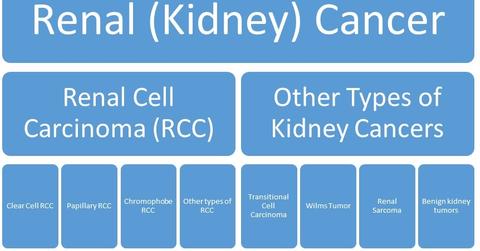Existing Drugs for Renal Cell Carcinoma
The FDA has accepted Bristol-Myers Squibb’s (BMY) supplemental biologics license application, or sBLA, for Opdivo for the treatment of patients with advanced renal cell carcinoma.
Nov. 23 2015, Updated 10:08 a.m. ET

Drugs for renal cell carcinoma
As discussed earlier in this series, the U.S. Food and Drug Administration, or FDA, has accepted Bristol-Myers Squibb’s (BMY) supplemental biologics license application, or sBLA, for Opdivo for the treatment of patients with advanced renal cell carcinoma, according to the company’s press release on November 16, 2015.
Novartis’s Afinitor and Votrient
Novartis’s (NVS) Afinitor is indicated for the treatment of renal cell carcinoma, hormone receptor-positive advanced breast cancer, and neuroendocrine tumors of pancreatic origin. For renal cell carcinoma, Afinitor is indicated for the treatment of patients whose disease has progressed after treatment with VEGF-targeted therapy.
Votrient, a drug indicated for the treatment of advanced renal cell carcinoma and advanced soft tissue sarcoma, was initially under GlaxoSmithKline (GSK) and was transferred to Novartis’ oncology portfolio as a part of the GSK-Novartis deal.
Bayer HealthCare Pharmaceuticals’ Nexavar
Bayer HealthCare Pharmaceuticals’ Nexavar is indicated for the treatment of renal cell carcinoma, hepatocellular carcinoma (a type of liver cancer), and differentiated thyroid carcinoma.
Pfizer’s Sutent and Torisel
Pfizer’s (PFE) Sutent is indicated for the treatment of advanced renal cell carcinoma, GIST (gastrointestinal stromal tumor), and pancreatic neuroendocrine tumors. Torisel is indicated for the treatment of advanced renal cell carcinoma.
Other drugs
Other drugs for renal cell carcinoma include Genentech’s Avastin, Pfizer’s Inlyta, and Proleukin. Proleukin is a product of Novartis (NVS), with Prometheus Laboratories having rights to distribute, promote, and sell Proleukin in the United States.
To diversify risk, investors can consider ETFs such as the VanEck Vectors Pharmaceutical ETF (PPH), which holds ~5.3% of its total portfolio in Bristol-Myers Squibb, or the iShares US Pharmaceuticals ETF (IHE).
